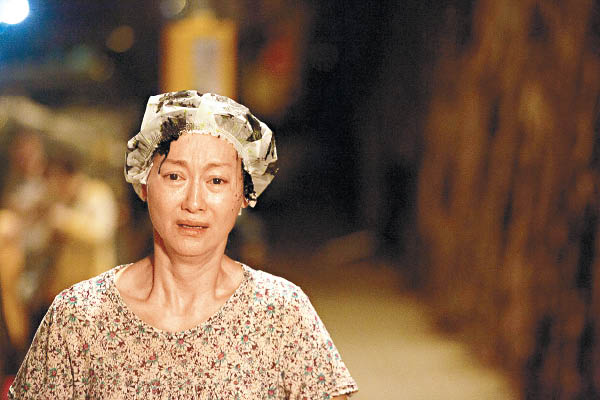 |
| courtesy of on.cc |
Kara Wai Ying Hung in the film HAPPINESS (HUNG WON SI NGOR) played an aging Alzheimer's disease patient; she not only had to appear without any make up but also had to wear aging make up to look more realistic. The vain Sister Hung early in the production did not even dare to watch the playback, but she admitted that the role was worth everything. "I want to show the audience the range of Wai Ying Hung's acting! I also hope that more people would get to know about this illness!"
To capture the spirit of an Alzheimer's patient, Sister Hung had an easier grasp because her mother was diagnosed with the illness. For over a decade she has taken care of her, which made Sister Hung even more experienced than the average person. "Mama around age 60 wouldn't remember a lot. Sometimes when she wants to find one thing it has actually always been in her hand. At first I made fun of her, but later it started to become serious. The doctor diagnosed her with Alzheimer's as her brain began to shrink to the point that her skull had gaps. In recent years her condition has deteriorated, she started to not be able to recognize her own children and her ability to move has been affected." During the shoot, Sister Hung would imitate Mama's everyday gestures like walking, picking things up, angles of thinking. Yet these were all superficial gestures. If she wanted to touch the audience's hearts she needed to put in more effort.
Wai Ying Hung said that in recent years she especially liked to work with new directors. "Because when actors sometimes are too well honed, they need new director's angle and new thinking to break through that frame and bring out something unexpected. Thus their acting can be even wider and broader. The process actually is a pleasure." Was she confident that HAPPINESS would bring her another Best Actress award? Sister Hung said, "I won't think about that too much, instead I feel a sense of duty. I hope this movie would introduce more people to Alzheimer's. In Hong Kong few people have in depth understanding of this illness."



No comments:
Post a Comment